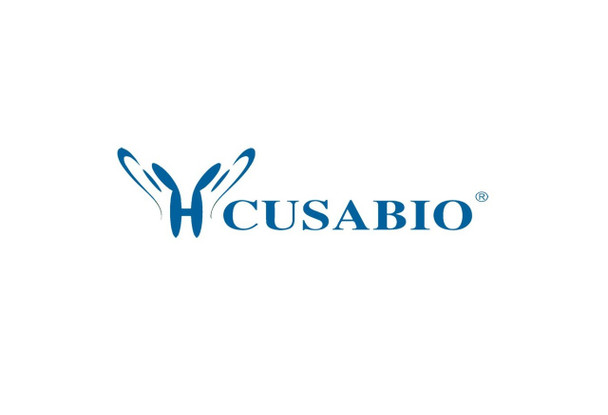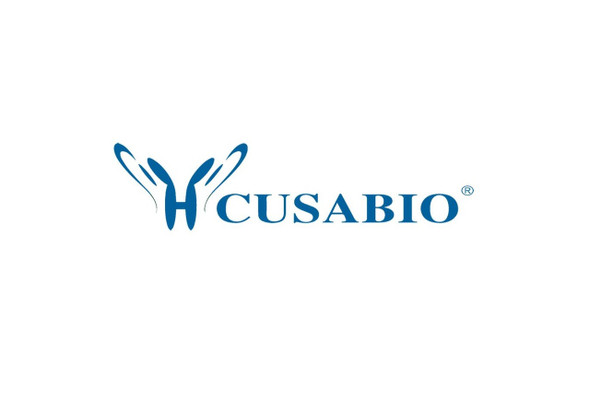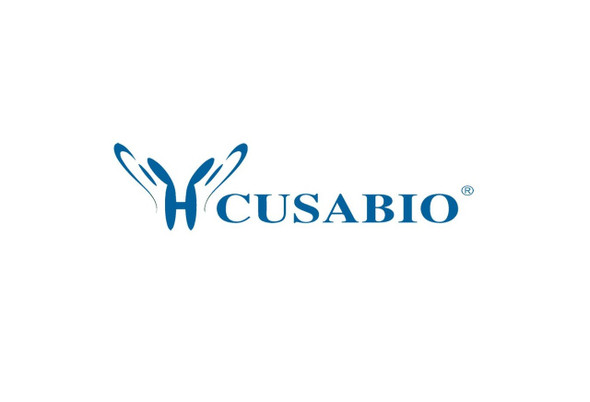Cusabio Human Recombinants
Recombinant Human Acyl-CoA desaturase (SCD) | CSB-CF020802HU
- SKU:
- CSB-CF020802HU
- Availability:
- 18 - 23 Working Days
Description
Recombinant Human Acyl-CoA desaturase (SCD) | CSB-CF020802HU | Cusabio
Alternative Name(s): Delta(9)-desaturase Short name: Delta-9 desaturase Fatty acid desaturase Stearoyl-CoA desaturase1 Short name: hSCD1
Gene Names: SCD
Research Areas: Cancer
Organism: Homo sapiens (Human)
AA Sequence: MPAHLLQDDISSSYTTTTTITAPPSRVLQNGGDKLETMPLYLEDDIRPDIKDDIYDPTYKDKEGPSPKVEYVWRNIILMSLLHLGALYGITLIPTCKFYTWLWGVFYYFVSALGITAGAHRLWSHRSYKARLPLRLFLIIANTMAFQNDVYEWARDHRAHHKFSETHADPHNSRRGFFFSHVGWLLVRKHPAVKEKGSTLDLSDLEAEKLVMFQRRYYKPGLLMMCFILPTLVPWYFWGETFQNSVFVATFLRYAVVLNATWLVNSAAHLFGYRPYDKNISPRENILVSLGAVGEGFHNYHHSFPYDYSASEYRWHINFTTFFIDCMAALGLAYDRKKVSKAAILARIKRTGDGNYKSG
Source: in vitro E.coli expression system
Tag Info: N-terminal 10xHis-tagged
Expression Region: 1-359aa
Sequence Info: Full Length
MW: 44.3 kDa
Purity: Greater than 85% as determined by SDS-PAGE.
Relevance: Stearyl-CoA desaturase that utilizes O2 and electrons from reduced cytochrome b5 to introduce the first double bond into saturated fatty acyl-CoA substrates. Catalyzes the insertion of a cis double bond at the delta-9 position into fatty acyl-CoA substrates including palmitoyl-CoA and stearoyl-CoA. Gives rise to a mixture of 16:1 and 18:1 unsaturated fatty acids. Plays an important role in lipid biosynthesis. Plays an important role in regulating the expression of genes that are involved in lipogenesis and in regulating mitochondrial fatty acid oxidation. Plays an important role in body energy homeostasis. Contributes to the biosynthesis of membrane phospholipids, cholesterol esters and triglycerides
Reference: "Human stearoyl-CoA desaturase: alternative transcripts generated from a single gene by usage of tandem polyadenylation sites." Zhang L., Ge L., Parimoo S., Stenn K., Prouty S.M. Biochem. J. 340:255-264(1999)
Storage: The shelf life is related to many factors, storage state, buffer ingredients, storage temperature and the stability of the protein itself. Generally, the shelf life of liquid form is 6 months at -20?/-80?. The shelf life of lyophilized form is 12 months at -20?/-80?.
Notes: Repeated freezing and thawing is not recommended. Store working aliquots at 4? for up to one week.
Function: Stearyl-CoA desaturase that utilizes O(2) and electrons from reduced cytochrome b5 to introduce the first double bond into saturated fatty acyl-CoA substrates
Involvement in disease:
Subcellular Location: Endoplasmic reticulum membrane, Multi-pass membrane protein
Protein Families: Fatty acid desaturase type 1 family
Tissue Specificity: Detected in fetal liver, lung and brain. Highly expressed in adult adipose tissue, and at lower levels in adult brain and lung.
Paythway: PPARsignalingpathway
Form: Liquid or Lyophilized powder
Buffer: If the delivery form is liquid, the default storage buffer is Tris/PBS-based buffer, 5%-50% glycerol. If the delivery form is lyophilized powder, the buffer before lyophilization is Tris/PBS-based buffer, 6% Trehalose, pH 8.0.
Reconstitution: We recommend that this vial be briefly centrifuged prior to opening to bring the contents to the bottom. Please reconstitute protein in deionized sterile water to a concentration of 0.1-1.0 mg/mL.We recommend to add 5-50% of glycerol (final concentration) and aliquot for long-term storage at -20?/-80?. Our default final concentration of glycerol is 50%. Customers could use it as reference.
Uniprot ID: O00767
HGNC Database Link: HGNC
UniGene Database Link: UniGene
KEGG Database Link: KEGG
STRING Database Link: STRING
OMIM Database Link: OMIM









